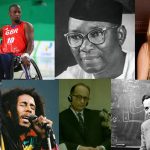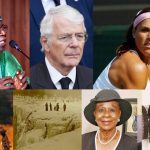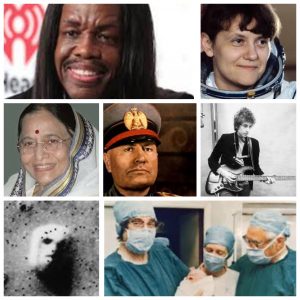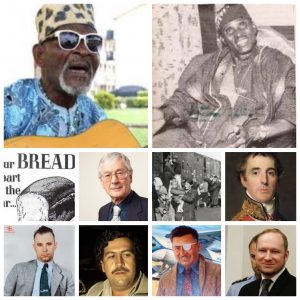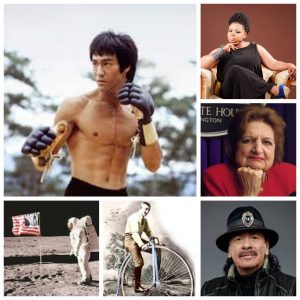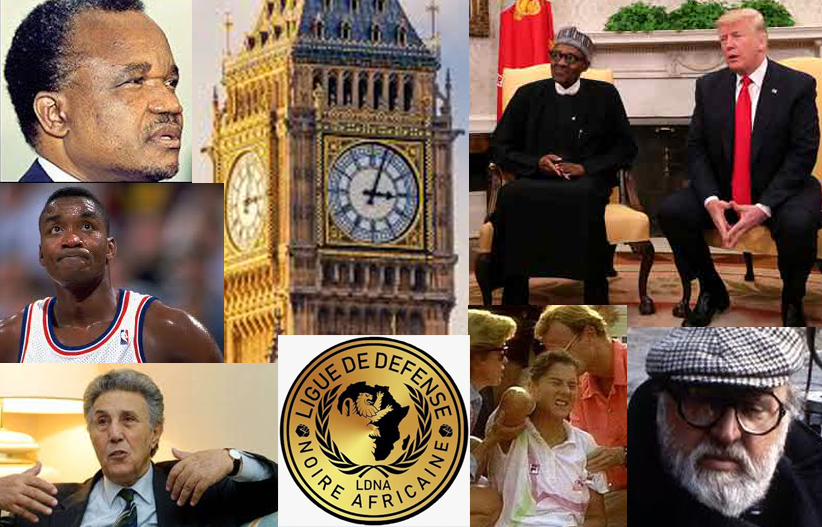
1789: George Washington becomes the first U.S. President
Washington took the oath of office on the balcony of Federal Hall in New York City. In the United States, he is venerated as one of the country’s founding fathers.

1897: British physicist J.J. Thomson announces the discovery of electrons. On April 30, 1897, British physicist J.J. Thomson announced his discovery that atoms were made up of smaller components. This finding revolutionized the way scientists thought about the atom and had major ramifications for the field of physics. Though Thomson referred to them as “corpuscles,” what he found is more commonly known today as the electron.
1916: Germany and its World War I allies become the first countries to use daylight saving time (DST)
The rationale was to save energy to aid the war effort. Other European countries, such as the United Kingdom, first introduced DST later that year.
1924: The Pan-African association Ligue Universelle pour la Defense de la Race Noire is formed in Paris. Founded by Kojo Tovalou Houénou, a descendant of the last king of Dahomey (Benin), who has lately become radicalized in the anti-colonial movement, the group aims to defend the rights of black people worldwide. Houénou will travel to the U.S. in August to establish ties between the organization and black empowerment groups serving the African Diaspora in America.

1945: Adolf Hitler and his newlywed wife, Eva Braun, committed suicide in their bunker in Berlin, Germany. On April 30, 1945, holed up in a bunker under his headquarters in Berlin, Adolf Hitler commits suicide by swallowing a cyanide capsule and shooting himself in the head. Soon after, Germany unconditionally surrendered to the Allied forces, ending Hitler’s dreams of a “1,000-year” Reich.
1964: Algerian President Ben Bella is awarded the Hero of the Soviet Union, at a time when both East and West Cold War powers seek his favour. Bella is more interested in championing liberation movements throughout the Third World, and he seeks to position Algeria as the leader of Third World countries.

1975: The fall of Saigon marks the end of the Vietnam War. As Communist forces gained control of Saigon, South Vietnamese President Duong Van Minh, who had only been in office for 2 days, surrendered unconditionally.
1989: Italian director Sergio Leone—who popularized the “spaghetti western” with his hugely successful Dollar trilogy, which included the masterpiece The Good, the Bad, and the Ugly (1966)—died at age 60.

1993: CERN announces that World Wide Web protocols will remain free. By offering the software required to operate a web server with an open license, the European organization ensured its dissemination, and the WWW flourished.
1993: Tennis ace Monica Seles is stabbed by an obsessed fan. Top women’s tennis player Monica Seles is stabbed by a deranged German man during a match in Hamburg. The assailant, a fan of German tennis star Steffi Graf, apparently hoped that by injuring Seles his idol Graf would be able to regain her No. 1 ranking. Although the stab wound proved to be relatively harmless, the psychological ramifications meant that Seles did not play any tournaments for over two years.
Seles became the youngest woman to win the French Open in 1990 when she defeated No. 1-ranked Steffi Graff in the finals. In 1991, Seles, a power player with a habit of grunting loudly during matches, replaced Graf as the top-ranked women’s player.

1997: Big Ben clock stops at 12:11 pm for 54 minutes. On April 30, 1997, at exactly 12:11 pm, London’s iconic Big Ben clock stops ticking. For 54 minutes, the most famous clock in the world failed to keep time. Completed in 1859, Big Ben has a long history of technical issues. The first bell cast for the tower cracked before it could be installed, and the second bell also developed a crack shortly after installation, resulting in silence from the tower until 1862. The bells stopped ringing again during World War I, and the tower was not illuminated at night for the duration of World War II when most of London was kept dark to make German bombing raids more difficult.

2015: Ben E. King was an American singer born on September 28, 1938. He died on this day in 2015, at age 76 in Hackensack, New Jersey, USA.
2018: President Muhammadu Buhari meets with Trump and has again blamed killings in some parts of the country by suspected herdsmen on armed men from Libya.

2021: A teenage schoolgirl from Limpopo Province, South Africa who has been repeatedly bullied at school, Lufuno Mavhunga, takes her own life after a video of her being assaulted by a girl schoolmate is posted on social media and “enjoyed” by her classmates. (pic: as she is about to be slapped in video). Her suicide sparks an international discussion on bullying, the misuse of social media, and the need to make schools sanctuaries for education and children’s growth, not brutality.
BIRTHS ON THIS DAY APRIL 30
Frederick Chiluba (30 April 1943 – 18 June 2011)
Frederick Jacob Titus Chiluba was a Zambian politician who was the second president of Zambia from 1991 to 2002. Chiluba, a trade union leader, won the country’s multi-party presidential election in 1991 as the candidate of the Movement for Multi-party Democracy, defeating long-time President Kenneth Kaunda. As Zambia’s second president, Chiluba ran an infamously corrupt administration. He died at 68.

Isiah Thomas, 63 years
Isiah Lord Thomas III, also known as “Zeke” was born on 30 April 1961. He is an American professional basketball player, philanthropist, and coach who is an analyst for NBA TV.

Kindly like, comment, follow, and share.




